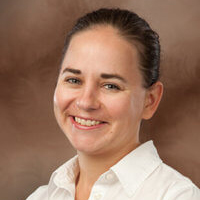Nadezhda Mandelstam’s Hope Against Hope
Read the story of a doomed poet & his wife's heroic dedication to the preservation of his verse.
Mondays & Thursdays | Jan. 6–30, 2025
Online Seminar
George Eliot’s Middlemarch (1872), is widely regarded as one of the greatest novels in the English language. A fascinating portrait of life in a provincial English town during the politically charged years of 1829-32, Middlemarch features a wide array of characters bound together in a complex social web. Its psychological complexity, moral seriousness, and subtle humor—as well as its depiction of ambition, disillusionment, and betrayal—are some reasons Virginia Woolf famously called it “one of the few English novels written for grownup people.”
The journalist Nathan Heller recently noted that in an age dominated by social media and smartphones, “assigning Middlemarch . . . [is] like trying to land a 747 on a small rural airstrip.” The novel demands a level of attention and focus—not to mention time—that few people in the 21st century devote to books. But Eliot’s masterpiece rewards that attention, and this seminar will make the experience even more fruitful.
In twice-weekly discussions of the novel, fellows will consider such questions as: What, if anything, makes human improvement possible? How does the novel’s community adapt or react to social and political change? How can we better understand the people around us? What does the novel suggest constitutes a good life? What are the characteristics of a happy marriage?
Christopher Scalia on Middlemarch
This course is offered by Humanities at Hertog. It takes place weekly on Mondays & Thursdays, via Zoom, from 6 PM to 8 PM ET. Fellows will receive a $150 stipend contingent upon participation in the course and completion of a brief response paper. All course materials will be provided.

Christopher J. Scalia is a senior fellow in the Social, Cultural, and Constitutional Studies department at the American Enterprise Institute, where he focuses on literature, culture, and higher education. Prior to his role at AEI, Dr. Scalia was an English professor with a specialty in 18th-century and early 19th-century British literature.

Christopher J. Scalia is a senior fellow in the Social, Cultural, and Constitutional Studies department at the American Enterprise Institute, where he focuses on literature, culture, and higher education.
A former English professor, Dr. Scalia specialized in 18th-century and early 19th-century British literature. He also spent three years as director of AEI’s Academic Programs department, where he led educational and professional-development programs and events for college students around the country. His articles, essays, and reviews on literature, music, higher education, and other topics have appeared in the Wall Street Journal, the Washington Post, USA Today, Commentary, National Review, First Things, the Washington Free Beacon, the Times Literary Supplement, the Spectator World, and FoxNews.com, among other outlets.
Dr. Scalia is the coeditor of On Faith: Lessons from an American Believer (Crown Forum, 2019), and Scalia Speaks: Reflections on Law, Faith, and Life Well Lived (Crown Forum, 2017). His forthcoming book, Eleven Conservative Novels You Must Read . . . but Probably Haven’t, will be published by Regnery Publishing in 2024.
Dr. Scalia has a PhD and MA in English from the University of Wisconsin–Madison. He has a BA in English with a minor in history from the College of William & Mary.
Readings:
Discussion Questions:
Readings:
Discussion Questions:
Readings:
Discussion Questions:
Readings:
Discussion Questions:
Readings:
Discussion Questions:
Readings:
Discussion Questions:
Readings:
Discussion Questions:
Readings:
Discussion Questions:

Jacob Howland
Jacob Howland has published five books and roughly 60 scholarly articles and review essays on the thought of Plato, Aristotle, Xenophon, Kierkegaard, the Talmud, the Holocaust, ideological tyranny, and other subjects. His most recent book is Glaucon’s Fate: History, Myth, and Character in Plato’s Republic.

Christopher Scalia
Christopher J. Scalia is a senior fellow in the Social, Cultural, and Constitutional Studies department at the American Enterprise Institute, where he focuses on literature, culture, and higher education. Prior to his role at AEI, Dr. Scalia was an English professor with a specialty in 18th-century and early 19th-century British literature.

Cheryl Miller
Cheryl Miller is executive director at the Hertog Foundation. Previously, she served as deputy director of research in the Office of Presidential Speechwriting and as research assistant to David Brooks at The New York Times. Her reviews and commentary have appeared in such publications as The Wall Street Journal, Commentary, and The Weekly Standard. She graduated from the University of Dallas with Bachelor of Arts degrees in English and Politics.

Molly Brigid McGrath
Molly Brigid McGrath is a professor of philosophy at Assumption University. She specializes in phenomenology, social ontology, and political philosophy, with particular interests in the works of Husserl, Aristotle, Searle, and classic texts by Plato, Aquinas, and Montesquieu.

Yoram Hazony
Yoram Hazony is an Israeli philosopher, Bible scholar, and political theorist. He is President of the Herzl Institute in Jerusalem, and Director of the John Templeton Foundation’s project in Jewish Philosophical Theology. His books include The Virtue of Nationalism and The Philosophy of Hebrew Scripture.

Bryan Garsten
Bryan Garsten is Professor of Political Science at Yale University. He writes on questions about political rhetoric and deliberation, the meaning of representative government, the relationship of politics and religion, and the place of emotions in political life.